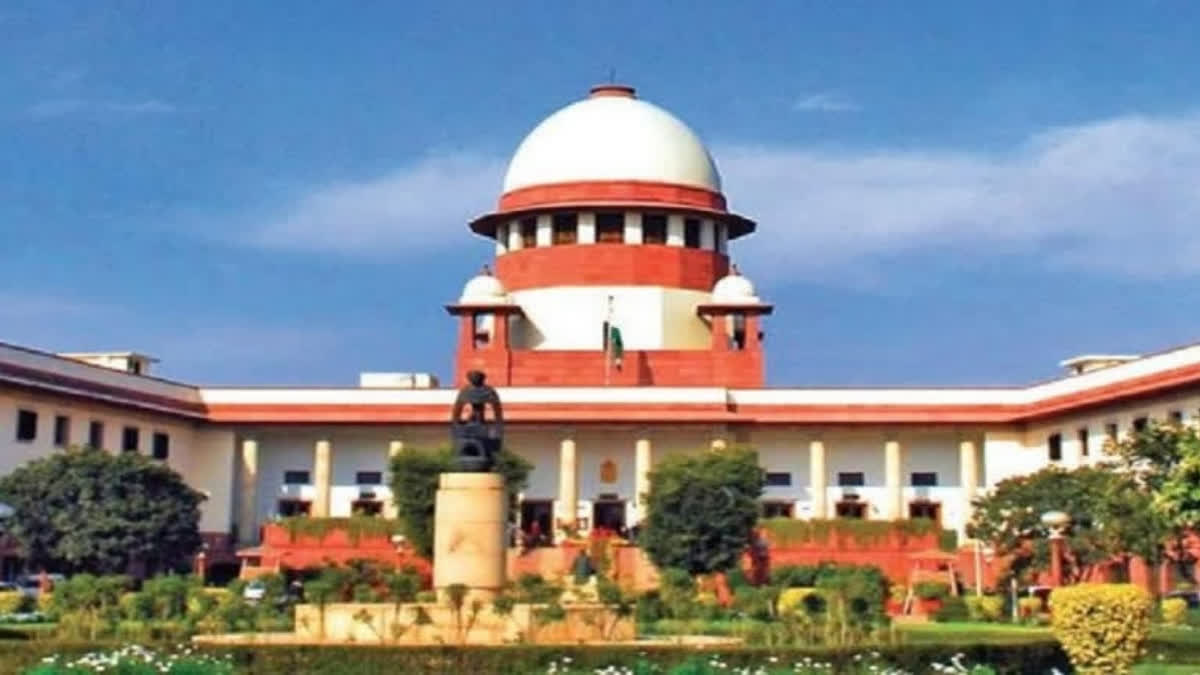New Delhi: The Supreme Court on Tuesday rapped the Centre for failing to act in BJP-ruled states – in connection with implementing 33% reservation to women in urban municipalities in Nagaland – saying, “You take extreme stands against states that are not amenable to you”, but do nothing against its own state government, and said Centre cannot “wash-off its hand” from the Nagaland women reservation matter.
When Centre’s counsel cited the prevalent situation in the north-east, a senior judge of the apex court said, “I can assure you, as far as the judiciary is concerned, what has happened is very painful. Let us not tell who should have done what and what should have been done….”.
A bench headed by justice Sanjay Kishan Kaul told additional solicitor general (ASG) K M Nataraj, representing the Centre, “You cannot say that politically you are not on the same page. Politically you are on the same page. It is your government, you can’t get away……don’t make me say the central government is not willing to implement the Constitution, I will say it, I have no difficulty…”.
Justice Kaul said the Centre takes action against a state government not amenable to it and queried, what active role has Centre played to oversee a constitutional scheme implemented by Nagaland? When Nataraj made submissions to defend the Centre, justice Kaul said, “I refuse to let you wash your hands off…I am sorry Mr Nataraj. You are on the same political page. You will take an extreme stance against state governments not amenable to you…..(Nagaland) is violating the Constitution, and you don’t want to say anything”.
Nataraj urged the apex court to give some reasonable time to the Nagaland government in the matter. Justice Kaul told Nataraj the matter is that about one-half of the society gets at least one-third representation in political governance at the municipal levels not even at the state level, in a state which says advanced education for women and their participation in every aspect of life.
Nataraj cited the current situation prevailing in the northeastern states. Justice Kaul said, “You cannot wash off your hands….”. Nataraj reiterated that the court should give some reasonable time to the Nagaland government. Justice Kaul reiterated that the court will not allow Centre to wash off its hand and pointed out that Nagaland is better than the neighbouring states which are facing problems and added, “Part of the Naga population is in Manipur…”. The top court told Nataraj that the Nagaland government gave an assurance to the court and then backed out of it.
Justice Kaul said while stressing the importance of the matter, “14 years have passed….”. However, Citing the current situation in the northeast, Nataraj said kindly give some reasonable time to the Nagaland government so that a quietus can be put. Justice Kaul said, “I can assure you, as far as the judiciary is concerned what has happened is very painful. Let us not tell who should have done what and what should have been done…I am restraining myself from saying something ... .but the fact that this problem has arisen, it has nothing to do with the issue at hand (at least one-third of representation for women in political governance at municipal levels)”.
The bench, also comprising justice Sudhanshu Dhulia, noted that the state’s advocate general eight times seeks to assure the court that the constitutional scheme will not be violated and need some time to impress upon the political dispensation that the only way forward is to implement the mandate of the Constitution, that is granting one-third reservation to women in municipalities.
The top court noted that the political dispensation in the state is aligned with the political dispensation at the Centre. After a detailed hearing in the matter, the top court gave the final opportunity to the Nagaland government and scheduled the matter for further hearing at the end of September.
Earlier during the hearing, the top court asked Nagaland government counsel, if there was any provision against reservation for women. Why resistance to the participation of women when in all walks of life, they are equally involved? The advocate general of Nagaland said there are women's organisations who say that they do not want reservations and this is not a small number, and also these are educated women. Justice Kaul said when a social change takes place it is the law that changes first, and there is always resistance to the status quo and somebody has to take the initiative to change the status quo.
On April 17, the top court directed Centre’s counsel to “place the stand of the Union of India whether the constitutional scheme of 1/3rd reservation for Municipalities and Town Councils, in the opinion of the Central Government can be violated by the process so adopted by the Nagaland Government”. The top court was dealing with a petition seeking implementation of the court's March 14 order directing the state to implement 33% reservation to women in urban municipalities under Part-IXA of the Constitution.
Later, the state government cancelled the election to the 36 town councils and three municipal councils on March 30 and repealed the Nagaland Municipal Act under which the elections were to be held. NGO People’s Union for Civil Liberties (PUCL) challenged this decision before the apex court. The NGO has been fighting the battle in court since 2016 to get urban women their due rights under the Constitution.



